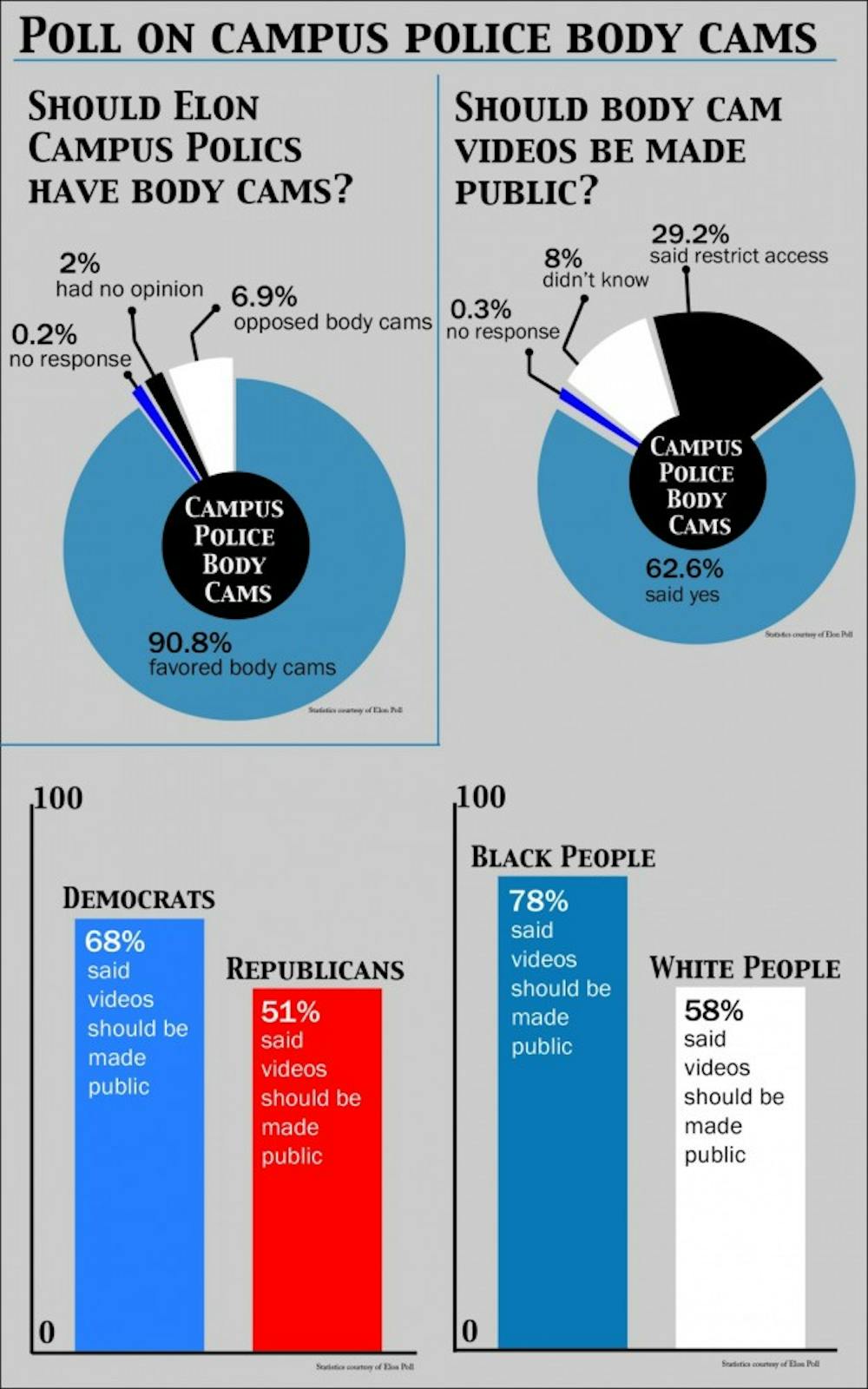Elon University’s Campus Safety and Police showed commitment to building trust with the Elon community when they outfitted their officers with body cameras in August 2014. Video evidence from body camera footage provides a layer of security for the police and the people they serve, and that evidence should be accessible to the public.
The North Carolina General Assembly defines public records as any documentary materials, including film and recordings, made or
received in connection with the transaction of public business. Based on this definition, it seems body camera footage falls squarely into the category of public record.
But the laws distinguishing what is accessible to the public are tricky. Footage from criminal investigations is exempt from the public records statute. Body camera videos document suspected or actual criminal activity, and law enforcement officials may withhold them from public scrutiny.
Even though agencies don’t have to release body camera footage, the law doesn’t prohibit making the videos public. Officers have the power to exercise judgment on what should and shouldn’t be made public. In the name of transparency, officers should opt to share that information.
Director of Campus Safety and Police Dennis Franks said video footage is available under limited circumstances, but he did not elaborate on what specifically would call for its release.
Footage captured by Elon police officers, with the exception of videos involved in ongoing investigations, should be open to the public. Officers can then use their discretion to protect victims by blurring their faces and omitting other information that would identify students.
It’s important to note that North Carolina’s general public record laws don’t apply to personnel files and employee records. Information collected by city agencies for the purpose of evaluating employees is confidential. Some content obtained by Elon Police’s body cameras will likely fall under this exemption.
Adding body cameras to the arsenal of safety measures at Elon was a major step in holding police officers accountable and deterring crime. But to achieve transparency between law enforcement and the Elon community, individuals should have access to the data captured when police officers attend to calls on campus.
In the latest Elon Poll, released March 11, participants were split along party lines when asked if video footage should be made public, with 70 percent of democrats saying the videos should be public record. Participants were also racially divided on this issue, with 78 percent of black respondents advocating for public release of body camera footage.
The poll indicated 90 percent of respondents supported on-duty police officers wearing body cameras. Given the overwhelming support and recent demand for police body cameras, it’s a no-brainer that local law enforcement agencies should implement this technology if they can afford to do so. Elon spent about $4,800 on four cameras, battery packs and related accessories for storing the footage, but the equipment is a worthwhile investment.
Body camera technology is currently ahead of the laws governing what becomes of the data collected. The cameras are used by law enforcement for purposes that don’t fall squarely within the definition of public records, but the question of whether they should be treated as such pits transparency against privacy.
The type of video captured by body cameras stimulates public and media interest. It’s a form of documentation the Elon community has the right to see.


